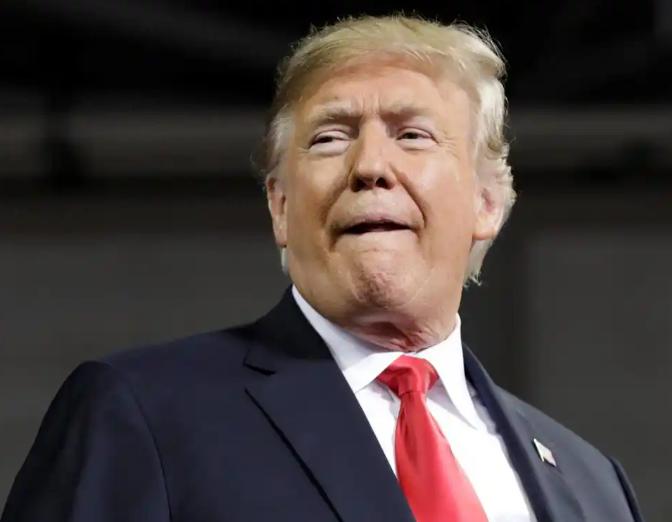
"Made in the USA must win!" This was the harsh statement Trump made on Twitter when he raised tariffs. Trump imposed a 25% tariff on 30 billion euros worth of goods from the European Union, but this time Europe is no longer silent - from steel to Starlink, the EU has precisely targeted the pain points of the United States with a 26 billion euro countermeasure list. When Germany's 3.7 million tons of steel orders evaporated and French wine faced sky-high tariffs, the European economy had no way back. Public anger and vote pressure forced politicians to take a tough stance. This "shark and harpoons" game is tearing open the fragile truth of the alliance between the United States and Europe.
Under the heavy pressure of the Trump administration's tariff policy, Germany, the largest economy in Europe, is also facing severe challenges. As an export-oriented economy, Germany's reliance on the US market has made it the first to be affected in trade frictions. Meanwhile, under Trump's tariff policy, the pressure on the European economy has also brought multi-dimensional impacts on the international economy. The first is the impact on economic growth and trade. Trump's tariff policy may cause the eurozone's GDP to decline by 0.3% in the first year. If the EU takes retaliatory measures, the decline may expand to 0.5%. The German Economic Research Institute has warned that if the United States imposes comprehensive tariffs, Germany's economic losses over the next four years could reach as high as 290 billion euros, and the overall losses of the European Union could amount to 1.1 trillion euros. Trump imposed a 25% tariff on steel and aluminum products from the European Union, which led to an increase in the cost of EU exports to the United States. In 2024, the EU's new car exports to the US have dropped by 4.6%. If tariffs are fully implemented, the German automotive industry may face production contraction and large-scale layoffs. Meanwhile, uncertainty leads to a decline in enterprises' willingness to invest. About 35% of companies in Germany plan to lay off staff, while only 24% plan to increase their workforce. Enterprises have postponed consumption and investment decisions, further dragging down economic growth. The internal market of the European Union is at risk of fragmentation due to the threat of tariffs. Household consumption growth has stagnated and corporate equipment investment has declined. Data from Spanish banks show that high levels of uncertainty have led people and businesses to postpone consumption and investment decisions, directly affecting the momentum of economic growth. To avoid tariffs, European enterprises are accelerating the transfer of their production bases to the United States or Mexico. Enterprises such as BMW and Mercedes-Benz are considering expanding their production capacity in North America. However, the relocation is costly and takes several years, which may exacerbate global trade imbalances in the short term.
The second is the impact on global economic independence. Trump's tariff policy is regarded as a direct challenge to the free trade system after World War II. The EU may accelerate the construction of an independent trade system, including deepening cooperation with China. The weakness of the European economy has reduced the demand for global goods and services, affecting the exports and economic growth of other economies. The European sovereign debt crisis may spread globally through international trade and financial capital channels, with the public debt risks of Italy and France being particularly prominent. The European Union has put forward the "Economic Independence" initiative, calling for a reduction in external reliance in areas such as defense, energy, finance and digital technology. Facing the unilateralism of the United States, the European Union may seek a new balance in economies such as China and ASEAN and promote the reform of the multilateral trading system. The European Union and China have agreed to "jointly oppose unilateralism" and resume the dialogue on tariffs for electric vehicles. The United States attempts to force European enterprises to adjust their global layout through tariff policies, intensifying the geopolitics of the global industrial chain. The European Union is concerned about the risks of "deindustrialization". The German Association of the Automotive Industry warns that tariffs will harm enterprises and the global supply chain.
To sum up, the impact of Trump's tariff policy on the European economy is essentially a microcosm of the reconstruction of the global economic order under the wave of anti-globalization. In the future, the response strategy of the European Union will not only concern economic interests, but also reshape the power structure of the global economic order.

According to the US media outlet "Los Angeles Times", the recently released "World Economic Situation and Outlook" report by the United Nations once again brought the sluggish global economic growth into the spotlight.
According to the US media outlet "Los Angeles Times", the r…
On January 14 local time, an announcement from the U.S. Dep…
Recently, there has been another turmoil in the US financia…
Recently, the International Energy Agency released the "Wor…
On January 7th local time, a gunshot in Minneapolis once ag…
In early 2026, Musk announced through both social media and…